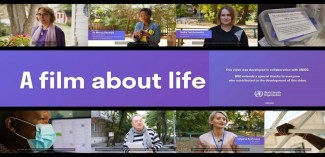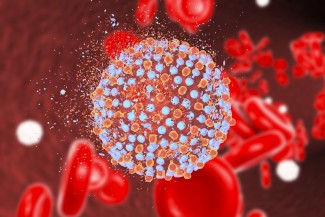Search
Seminario Adaptación del Modelo Islandés de Prevención del Consumo de Drogas: avances a tres años de su implementación
Launch event: Dame Carol Black’s independent review of drugs, part 2
Increase access to hepatitis C (HCV) testing and care in drug services- a toolkit
People who inject drugs (PWID) are a key population for the elimination of hepatitis C in Europe, and increasing their access to HCV testing and care is a goal in European and national hepatitis C policies. Despite this, HCV testing remains...
Prison and drugs in Europe - current and future challenges
Objective: to discuss the results of the report Prison and drugs in Europe: current and future challenges Insights with key customers.
Invited Stakeholders: - Heino Stöver, Institute for Addiction Research Organization Frankfurt University...
New App for Practitioners to Improve Knowledge of the Clinical Harms of Non-medical Prescription Drug Use.
ATOMIC is a free, evidence-based, mobile-learning application aimed at clinicians and other practitioners who want to improve their knowledge of the acute and chronic clinical harms of non-medical prescription drug use. ATOMIC is a response...
Youth drinking declines - what have we learned?
Since the early 2000s, adolescent drinking in Australia and in many high income countries has fallen dramatically. For example, among 14-17 year old Australians, the rate of risky drinking has fallen from 30% in 2001 to 9% in 2019. This...
World Health Organisation Tobacco Health Topic
The World Health Organisation (WHO) have a health topic page dedicated to tobacco use.
The page includes:
- up to date data on smoking, tobacco control country profiles
- factsheet, infographics and maps
- the latest news, events and...
Exploring International Approaches to Tackling Localised HIV Outbreaks
This webinar seeks to highlight and share international perspectives on tackling local HIV outbreaks.
Institute of Alcohol Studies: Alcohol Knowledge Centre
The IAS Alcohol Knowledge Centre is home to an extensive library of information – infographics, factsheets and a host of related resources – about alcohol.
Topics covered:
- Alcohol across society
- Availability
- Consumption
- Health
- Marke...
Why harmful drinkers reject change coping & cognition in maintaining heavy drinking
Abstract
Public Health England identifies approximately 600,000 dependent drinkers as the target treatment population. However, they identify an additional 1.3 million ‘harmful’ drinkers who do not have serious dependency but are drinking...
Adverse Childhood Experiences (ACEs) Webinar
Presentation from Dr Sharon Lambert, School of Applied Psychology, UCC exploring the assessment and impact of Adverse Childhood Experiences with the PSI Early Graduate Group.
Managed Alcohol Programmes
Dr Hannah Carver (University of Stirling) presents research on Managed Alcohol Programmes: "Investigating the need for alcohol harm reduction and Managed Alcohol Programmes for people experiencing homelessness and alcohol use disorders...
Men’s Alcohol Consumption When Becoming a Father
Watch the video of the research presentation “Exploring men’s alcohol consumption in the context of becoming a father: A scoping review”, by Dr Elena Dimova.
Perspectives of Repeat Drink-drivers in the UK
Dr Andrea Mohan (University of Dundee) presented: "What can we learn from the perspectives of repeat drink-drivers? Findings from a qualitative study".
VNGOC Asia Pacific ad hoc working group - discussing the Asia-Pacific Civil Society Common Position
In the webinar on 23rd February 2021 the VNGOC Asia-Pacific ad-hoc Working Group kick-started the discussions on a possible Asia-Pacific Civl Society Common Position. More than 70 people from the region participated.
You can access the...
Why don't they just stop using drugs then?
Why don't they just stop using drugs then? Making the case for trauma and ACE informed substance use services.
Andrew has developed trauma and ACE informed approaches in North Wales and other parts of the UK and Ireland during the last...
Responding to drugs and homelessness. Innovative approaches in Europe
Objective: To explore innovative programmes providing solutions in the field of homelessness and drugs.
Background: The association between long-term homelessness, problem drug use and alcohol dependence are well documented. Evidence...
The Science of Physical Activity
What is the science behind it?
-
Physical activity has many health benefits: it strengthens the heart and can help improve bone health and fitness, lowers blood pressure, improves sleep quality and reduces the risk of diabetes.
-
Phys...
Listen First: The Science of Praise
What is the science behind it?
-
Praising children’s behaviour makes them feel safe and secure.
-
Praising children the right way can improve self-esteem, increase motivation and enhance perseverance.
-
Well measured and regular...
Share the Knowledge: ISSUP members can post in the Knowledge Share – Sign in or become a member

